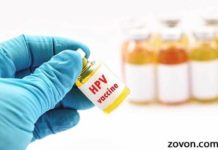
Increasing health risk of oral HPV cases in males

Recent case studies show that men are highly prone to the risk of infection through human papillomaviruses (HPV), which can cause cancer. There are over 150 types of HPV, from which some can cause the benign growth of warts, and a certain number of them can lead to cancer in various parts of the body includes penis, cervix, throat, anus, throat and mouth.
Oral HPV is s sexually transmitted disease (STD) that can be spread through oral sex with an infected individual.
Who is at risk?
This disease is appeared to be prevalent in males, who have been in a relationship with many oral sex partners. However, the number of cases of tobacco-linked cancer has been declined in the U.S. Because of increasing awareness about cancer caused by smoking, but the cases of oral cancer are still increasing due to HPV. This disease has been detected mostly in males of 50-59 of age. Also, this is being predicted by the researchers that it will increase in coming 40 years, and that will make oral cancer a major health concern.
HPV and Cancer:
In general cases, most of the risk-prone HPV infections are cured in 1-2 years with no detection of cancer, but in some cases, the infection persists. A persistently infected person has the high-risk of cancer. In most of the persons who have better immune system get their infections cured. However, in some cases, the virus can travel to other tissues like oropharynx.
Detection and Prevention:
The virus has been apparently detected by analyzing the saliva, but this is not the usual practice yet. There are HPV vaccines that can lower the risk of these infections. However, these vaccinations give protection from only the new type of HPV infections, and not from the one that has already infected the individual.
Gardasil vaccination has been given approval for the males and females of ages 9-26 under the guidance of pediatricians, obstetricians, gynecologists and primary health care physicians.
Moreover, safety and precautions are always advisable such as proper use of condoms may lower the risk of transmission of HPV between partners during intercourse. However, if the area not covered with the condom is infected may spread the virus.
There are no treatments available for the HPV infections, but some curative measures are available such as treatments through radiation and surgery with respect to the site, phase and medical history of the infected individual. And chemotherapy is also a prediction for the treatment.





